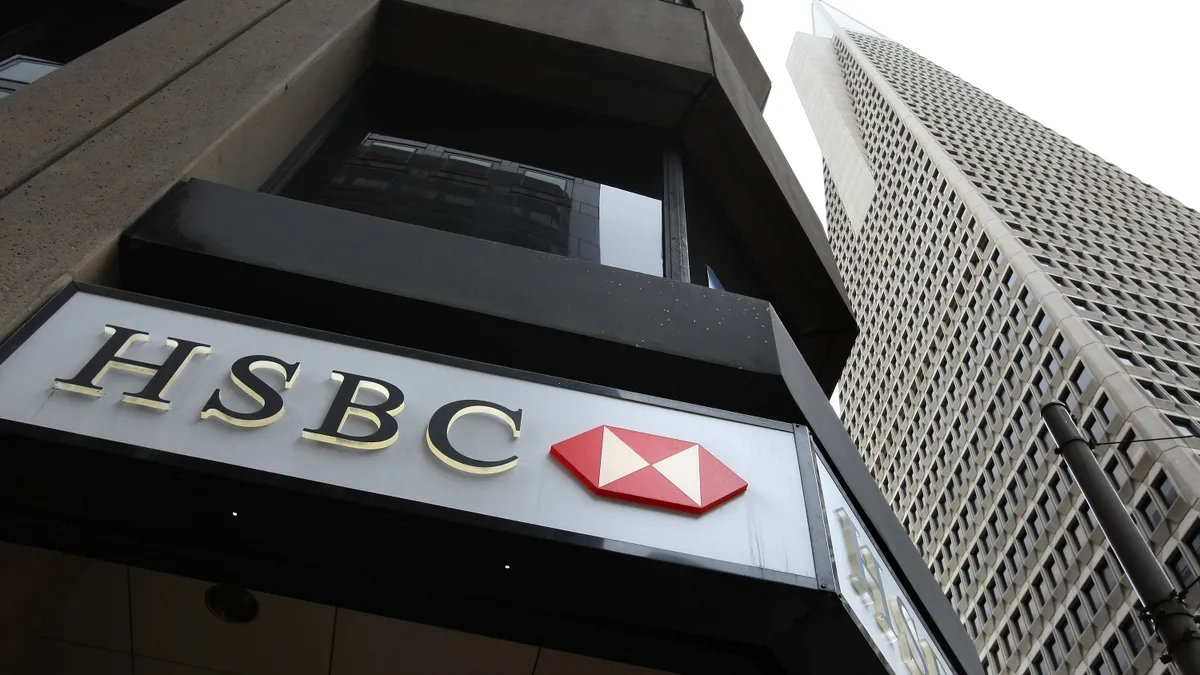Bank-fintech partnerships, including banking-as-a-service programs, have faced heightened scrutiny from regulators over the last two years as regulators play catch-up.
The power of these partnerships, though, is hard to ignore for both parties, as banks benefit from fintech’s fluidity and innovation and fintechs benefit from the legitimacy afforded to them through partnerships.
Banking Dive gathered insights from several bank and fintech executives in October to showcase the financial services industry’s perspective on the growth of bank-fintech partnerships and BaaS.
Read on for their thoughts.
“When we start thinking about partnering, working closely or embedding into solutions, if we don't have confidence in the systems and the processes that are being used, from a [know-your-customer] standpoint, we simply can't work with that vendor. I think people are maturing around that and there's a lot of technology that's been developed to help remove the friction, but also a lot of banks like to do it themselves, their way, because ultimately, we own the risk.”

Dave Sabow
U.S. head of innovation banking at HSBC
“Consumers want to feel that the brand takes care of them from A-to-Z, whether it's Nike, Walmart, Amazon, Target – you name it. If a financial transaction is in the middle of that, so be it. At the end of the day, our job and the fintechs’ job, is to facilitate that. It’s not to get in the way. It's not about power grabbing, it's not about land grabbing, It's about reducing friction. Let the best win.”

Gilles Gade
CEO of Cross River Bank
“There is definitely value in how banking-as-a-service could develop over time. It's gotten a little bit of flack, especially in the U.S., because of the lack of KYC adherence in certain cases – or the fact that they've gone beyond banking-as-a-service to providing lending-as-a-service, which hasn't necessarily panned out the way they would want it to. But I think there is still opportunity with a lot of fintechs who can actually provide the service, so we're seeing this a lot in markets [including] Singapore, Indonesia, and Hong Kong.”

Anand Natarajan
Head of cash management sales for TMT and fintech at Standard Chartered Bank
“A lot of banks are now looking into how they can modernize their systems, and that's where companies like Riskified come in. We give them a lot more visibility into transactions. I'll give you an example: An issuing bank would see a transaction of $10,000 from Best Buy, and they would treat that as a high-risk transaction because of the amount. Whereas at Riskified, we want to know what you're buying. If you're buying a fridge that [for] $10,000, this is not a risky transaction, because you as a fraudster aren’t going to buy a fridge for $10,000 to try and resell it. You can't move a fridge around [easily]. But if you're spending $10,000 at Best Buy on a bunch of Mac Books, then this is very much risky behavior because it's easy for you to resell. Banks don't have that level of granularity of data, and we do. That's where we see the biggest potential of our partnerships with banks.

Max Meister Admoni
Director of partnerships at Riskified
“Partnership is critical. There are major innovations that are happening with huge implications, and the idea, for one, that any one company should dominate the financial industry is a little frightening. I think partnership ensures more ethical behavior, I think it ensures more scalable solutions, and I think it ensures that a variety of perspectives are being integrated into the impacts of those decisions. We really built our business based on partnership and integration, knowing that we're not gonna move the needle without it, and that everybody has their niches, their expertise and the things they bring to the table. If we leverage all of those, we can make some changes.”

Carolyn Rodz
Co-founder and CEO of Hello Alice
“Seven or even 10 years ago, the thought [was] fintech was going to disrupt banks, because of the friction – partly due to regulation and other factors – faced by big banks. [It’s transformed] to what you’re seeing today, where it’s more about partnerships and finding those areas where we complement each other, and together, we can have a greater impact. From an innovation standpoint, every company is faced with buy vs. make. Do you develop your own products, or do you buy from someone who makes them better? In our case, it’s make vs. partner. That has been the journey.”

Thierry Jenar
Head of digital, tech and communications at Citi Commercial Bank
“You have to be committed and ready to do partnerships between banks and fintechs. They're valuable when executed well, and it's hard to execute well due to two main factors. One is clear goals and responsibilities for each party, and the second is for large banks to have a clear understanding of what a fintech could do for them. It sounds obvious, but it's not.”

Rob Seidman
Chief product officer at U.S. Bank
“I'm optimistic on banking-as-a-service. It makes business sense and it's what customers want. We just have to do it in a way that doesn't ruin the customer experience or the bank's longevity. Entire industries can blow up if you don't do it right.”

Michael Haney
Head of product strategy at Galileo Financial Technologies
“Pipe can never solve the end-to-end pain points of 100 different verticals. We will never ever succeed in doing that. … Pipe is focused on building the full suite of embedded financial services to allow vertical [software-as-a-service] software companies to focus on their customer and solve all their pain points and then allow Pipe to offer all the embedded financial services starting with capital. It’s about knowing that we're not going to be able to solve all the problems and partnering with folks that we think can.”

Luke Voiles
CEO of Pipe















